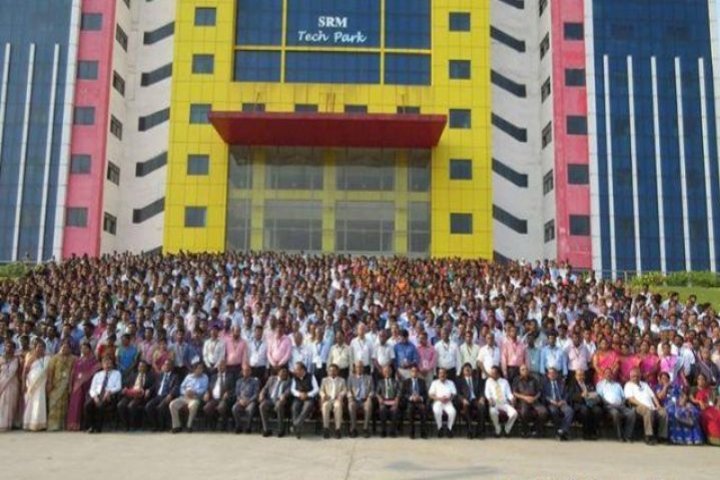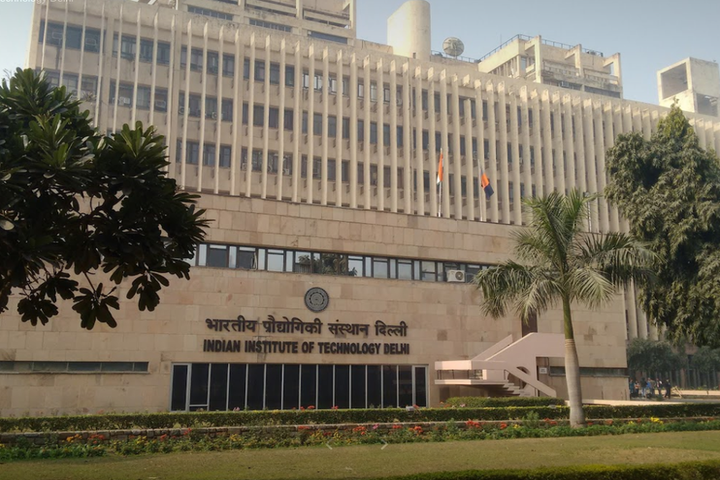
Cyber Security Course Details - Fees, Subjects, Syllabus, Duration, Eligibility, Career Scope
Degrees offered: B.E /B.Tech, M.Sc., BS, M.E /M.Tech., B.Sc.(Hons)
What is Cyber Security
Cyber Security course is the practice of protecting computers, networks, and digital systems from cyber threats, attacks, and unauthorised access. The course prepares students with knowledge of network security, ethical hacking, cryptography, and risk management. It prepares learners to safeguard sensitive information and maintain organisational data integrity in the digital age.
Students in Cyber Security learn to identify vulnerabilities, prevent cyber attacks, and implement robust security measures. The curriculum covers practical skills like penetration testing, malware analysis, and secure software development. This course is ideal for those aiming for careers in IT security, ethical hacking, network administration, or compliance and risk management.
Graduates in Cyber Security can work as Security Analysts, Ethical Hackers, Network Security Engineers, and Cybersecurity Consultants. Top companies such as Microsoft, Google, IBM, Infosys, TCS, EY, Wipro, and Accenture actively recruit skilled professionals. The field offers high demand, competitive salaries, and opportunities for growth in both private and government sectors.
Cyber Security: Highlights
The Cyber Security course focuses on preparing students with the skills to safeguard digital systems, networks, and sensitive data against cyber threats. It focuses on practical knowledge in ethical hacking, cryptography, and risk assessment to improve organisational security. Below are the key highlights of the Cyber Security course:
| Particulars | Values |
|---|---|
Name | Cyber Security |
Degrees | |
Duration | UG: 4 years PG: 2 years |
Eligibility | UG: 10+2 in science PG: Bachelor's degree in a related field |
Entrance Examination | UG: JEE Main, CUET UG PG: GATE, CUET PG |
Admission Process | Merit-Based or Entrance Examination |
Average Fees | Rs. 1 Lakh to Rs. 19 Lakhs |
Job Profiles | Security Developer, Security Analyst, Security Architect, Cybersecurity Engineer, Cybersecurity Consultant, and Ethical Hackers |
Top Recruiters | Tata Consultancy Services, Cognizant, Infosys, Amazon, Nokia, IntraEdge, Microsoft, Google, IBM, TCS, EY, Wipro, and Accenture |
Specialisations or Similar Courses
Cybersecurity is a broad field with several specialisations. Students can choose areas based on their interests and career goals. These specialisations equip professionals to tackle advanced security challenges and protect digital assets. Some popular specialisations in Cyber Security include:
Ethical Hacking | Network Security |
Cryptography | Cloud Security |
Cyber Forensics | Information Security Management |
Malware Analysis | Security Audit & Compliance |
Risk Assessment & Management | Cyber Threat Intelligence |
Top Private Cyber Security Colleges in India
Private universities in India offer specialised Cyber Security courses with modern infrastructure, industry collaborations, and practical training programmes. These colleges provide students with advanced learning experiences and exposure to real-world scenarios. However, fees are higher than at public institutions. Below is a list of the top private Cybersecurity colleges in India:
| Top Colleges | NIRF Ranking | Fees |
|---|---|---|
14 | Rs. 17 Lakhs | |
16 | Rs. 7.80 Lakhs | |
22 | - | |
Kalasalingam Academy of Research and Education, Virudhunagar | 33 | Rs. 4.53 Lakhs |
35 | Rs. 3.40 Lakhs | |
36 | Rs. 18.35 Lakhs | |
40 | Rs. 2.98 Lakhs | |
45 | Rs. 16 Lakhs | |
52 | Rs. 18.14 Lakhs | |
58 | Rs. 16.50 Lakhs |
Note: The fee structure provided above can be for any particular Cybersecurity course (Diploma/ Degree/PGD).
Top Government Cyber Security Colleges in India
In India, numerous government colleges offer Cybersecurity courses at both undergraduate and postgraduate levels. These publicly funded institutes provide quality education with affordable fees, making advanced training in this crucial field accessible to students. Below are some of the top government colleges, along with their fee details:
| Top Colleges | NIRF Ranking | Fees |
|---|---|---|
2 | Rs. 1.02 Lakhs | |
4 | Rs. 11.15 Lakhs | |
27 | Rs. 3.79 Lakhs | |
53 | Rs. 7.47 Lakhs | |
56 | Rs. 2.56 Lakhs | |
85 | Rs. 2.31 Lakhs | |
90 | Rs. 2.20 Lakhs | |
92 | Rs. 1.46 Lakhs | |
101-150 | Rs. 2.27 Lakhs | |
University College of Engineering, Osmania University, Hyderabad | 101-150 | Rs. 1 Lakh |
Eligibility Criteria (UG & PG) of Cyber Security
To join any course, students must meet certain eligibility requirements. For Cyber Security, candidates need to complete basic academic qualifications as set by their chosen college. The following are the key requirements for admission to a Cyber Security UG and PG programmes.
Cybersecurity Eligibility Criteria for UG Courses
Candidates who seek admission in Cyber Security courses at any university must fulfil certain eligibility criteria. This will help them to qualify for the university’s merit list. While these criteria may vary in certain aspects from university to university, the basic common points include:
- Students must have completed their class 12 with Maths, Physics, and Chemistry as the compulsory subjects from a recognised board.
- Candidates should have also scored a minimum of 50 per cent marks in their 10+2 to get admission in this cybersecurity course.
- Students can also pursue relevant specialisations in Cyber Security Courses after the 12th.
Top Entrance Examinations for UG Degrees
Aspiring students must clear an entrance examination to begin their Cybersecurity programme. Passing this exam is essential for eligibility and admission into reputed colleges. Performing well opens opportunities to join top institutions, providing a strong foundation for learning and building a successful career in the field of Cybersecurity.
| Exam Name | Level | Conducting Body | Exam Schedule |
|---|---|---|---|
National | NTA | ||
National | NTA |
Cybersecurity Eligibility Criteria for PG Courses
Students fulfilling the eligibility criteria can advance to a Master’s degree in Cyber Security at the postgraduate level. This programme develops specialised skills required for senior roles in the field. Some of the key requirements for admission into a Cyber Security postgraduate programme include:
- Candidates must complete their bachelor's degree in IT or any related field from a recognised university or board.
- They must score at least 50 per cent marks in their bachelor's degree from a recognised university.
- Students must appear for an entrance exam conducted by the universities or exam authorities.
Top Entrance Examinations for PG Degrees
Admission to postgraduate courses in Cyber Security relies on entrance exam scores. These exams assess candidates' aptitude in relevant fields and play a crucial role in determining admission to esteemed institutions offering specialised programmes in Cyber Security. The table below shows some of the top entrance exams for the Cybersecurity course:
| Exam Name | Level | Conducting Body | Exam Schedule |
|---|---|---|---|
National | IIM Lucknow | ||
National | NTA | ||
National | IIT Kanpur |
College Predictors VIEW ALL
Scope of Cyber Security in India and Abroad
The cybersecurity industry in India is growing rapidly. As per IMARC Group, it was valued at around USD 9.8 billion (approximately Rs. 8.6 lakh crore) in 2024 and is projected to reach USD 36.8 billion (around Rs. 32.3 lakh crore) by 2033, growing at a rate of 15.8 per cent per year. This steady growth is mainly due to increasing online threats, cloud computing activities, and the growing use of smartphones for digital payments and internet access.
In addition, career opportunities in this field are expanding quickly. According to BW People, cybersecurity job openings increased by nearly 14 per cent between 2023 and 2024, showing a strong demand for experts who can protect systems and data from cyberattacks.
Course Fees Cyber Security
| Minimum Fees | Maximum Fees | |||
|---|---|---|---|---|
| Private | Government | Private | Government | |
| UG | ||||
| PG | ||||
| DOCTORAL | ||||
| DIPLOMA | ||||
Course Subjects
The Cyber Security syllabus combines theoretical knowledge with practical applications, covering topics such as cyber crimes, network security, ethical hacking, and data protection. Course content may vary across universities. In this section, we have discussed the UG and PG level syllabi of the Cybersecurity course.
Cyber Security Syllabus for UG Course
The UG Cyber Security syllabus covers essential subjects like Information Security, Networking, Programming, Cyber Law, Ethical Hacking, and Artificial Intelligence, along with practical labs and project work. Students gain both theoretical and hands-on knowledge in digital security. The syllabus below is taken from Manav Rachna University.
Semester 1 | Semester 2 |
Chemistry | Quantum Mechanics For Engineers |
Introduction To Information Security | Programming For Problem Solving Using Python |
Basics Of Electrical & Electronics | Introduction To Standard S, Frameworks And Key Technology Concepts |
Engineering Graphics & Drawing | Calculus & Linear Algebra |
Programming For Problem Solving Using C | Professional English Basic/ Professional English Advance |
- | Environmental Studies |
Semester 3 | Semester 4 |
Probability & Statistics | Computer Networks |
App. Philosophy / App. Psychology / App. Sociology | Foreign Language |
Data Structures & Algorithms | Operating Systems |
Foreign Language (Spanish-i / German-i / French-i) | Indian Constitution |
Database Management System | OOPs Using Java |
Professional Competence CY Enhancement – Secure Coding In C/C++ | Essence Of Indian Traditional Knowledge |
Introduction To Research | Digital Forensics |
- | CDC |
- | Research & Innovation-1 |
Semester 5 | Semester 6 |
Network Security | Vulnerability Assessment and Penetration Testing |
Environmental Ethics & Sustainable Development / Green Computing / E-waste Management | Electronic Design Workshop / Manufacturing Workshop / 3D Software / CNC / Agile Technologies |
Theory Of Automata & Compiler Design | Artificial Intelligence & Machine Learning |
Cyber Law / Law Relating To Intellectual Property Rights | NPTEL Courses From MOOC |
Digital Electronics & Microcontroller | Entrepreneurship |
NPTEL Courses From MOOC | Sensors & IoT / Basics Of Robotics / 3D Printing / SAP / R Programming |
Advanced Java | NPTEL Courses From MOOC |
Professional Competency Enhancement-III | User Experience |
Research & Innovation-II | Professional Competency Enhancement-IV |
Semester 7 | Semester 8 |
Secure Software Development and Malware Analysis, and Reverse Engineering (Part 1) | Introduction To Finance: Basics Of Economics S |
Interfacing Android with Embedded Systems / Biology | Natural Language Processing |
NPTEL Courses From MOOC | Project |
Robotics In Automation | Computer Vision & Data Visualisation |
Non-Conventional Energy Sources | Secure Software Development and Malware Analysis, and Reverse Engineering (Part 2) |
Heating and Ventilation | NPTEL Courses From MOOC |
Air Conditioning (HVAC) / Operations Research By Optimising Technique | Neural Networks & Fuzzy Logic |
Cyber Security Syllabus for PG Course
The PG Cyber Security syllabus combines theoretical concepts with hands-on labs, covering subjects like Information Security, Application Cyber Security, Networking, Ethical Hacking, Cyber Law, and Programming in Java and Python. The curriculum prepares students with advanced skills to tackle digital threats. The syllabus is taken from Odisha State University, Sambalpur.
Semester 1 | Semester 2 |
Operating System Basics | Application Cyber Security |
Information Security | Application Cyber Security Lab |
Data Communication & Networking | Network Cyber Security |
Operating System Basics Lab | Network Cyber Security Lab |
Information Security Lab | Web Technology |
Data Communication & Networking Lab | Web Technology Lab |
Semester 3 | Semester 4 |
White Hat Hacking | E-Governance & Case Studies |
White Hat Hacking Lab | E-Governance & Case Studies Lab |
Security Analysis and Reporting | Cyber Law and Regulation of Cyberspace |
Security Analysis and Reporting Lab | Programming in Java |
Application Development using PHP | Programming in Java Lab |
Application Development using PHP Lab | Programming in Python |
Project Work | Programming in Python Lab |
Careers in Cyber Security
Cybersecurity opens a range of career paths in IT, finance, and government sectors. Professionals focus on protecting networks, monitoring threats, and implementing security measures. Strong technical knowledge and problem-solving skills are vital for growth. Below are some of the common job roles in Cyber Security.
| Job Roles | Description |
|---|---|
Cybersecurity Engineer | Cybersecurity Engineers develop and maintain security solutions, including firewalls and encryption systems. They safeguard critical digital assets and networks. |
Security Developer | Security Developers design and build secure software and applications. They implement measures to protect systems from cyber threats and vulnerabilities. |
Security Analyst | Security Analysts monitor systems, analyse security incidents, and respond to potential breaches. They help organisations strengthen their cybersecurity framework. |
Security Architects plan and design secure network and system infrastructures. They ensure robust protection against cyber risks. | |
Cybersecurity Consultant | Cybersecurity Consultants advise organisations on risk management and security strategies. They evaluate systems and recommend improvements. |
Ethical Hackers test systems for vulnerabilities by simulating attacks. They help organisations identify weaknesses and enhance overall security. |
Upcoming trends
The field of Cyber Security is constantly changing as new technologies and threats emerge. With the rise of digital transactions, cloud computing, and remote work, the need for stronger and more advanced security systems has grown rapidly. Below are some of the current and upcoming trends in Cyber Security.
- Zero Trust Architecture
- AI-Driven Threat Detection
- Cloud Security Enhancement
- Internet of Things (IoT) Security
- Quantum-Resistant Cryptography
- Identity-First Security
- Automation in Threat Response
- Data Privacy and Compliance
- Blockchain for Cybersecurity
Job Profiles and Top Recruiters
Cybersecurity experts are in demand in IT, finance, government, and other sectors. They help companies protect data, prevent cyber attacks, and keep systems secure. Many organisations hire skilled professionals to manage online safety. Below are some top recruiters for Cyber Security professionals.
Top Recruiters
- Tata Consultancy Services
- Amazon
- Cognizant
- Nokia
- Infosys
- IntraEdge
- IBM
- Microsoft
Average Salary
Salaries in Cyber Security vary based on experience, skills, location, and the type of organisation. Entry-level professionals can expect moderate packages, while experienced experts in leading companies often receive higher salaries. Below are some average salaries for Cyber Security roles in India.
| Job Roles | Average Salary (LPA) |
|---|---|
Security Developer | Rs. 5.3 LPA |
Security Analyst | Rs. 6.6 LPA |
Security Architect | Rs. 26.3 LPA |
Cybersecurity Engineer | Rs. 9.8 LPA |
Cybersecurity Consultant | Rs. 11.3 LPA |
Ethical Hacker | Rs. 2.5 LPA |
Source: AmbitionBox
Required Skillset for Cyber Security
With the increase in the development of technology and its evolution, cybersecurity professionals need to be updated and use their skills accordingly. Students must possess certain skills to get the most out of their cybersecurity programmes. After earning a cybersecurity degree, students will need the following skill sets to advance in their careers.
- Creativity
- Problem-Solving Skills
- Analytical Skills
- Programming
- Malware and Analysis Reversing
- Budgeting Skills
- Risk Analysis
- Cloud Security
Course Curriculum for Cyber Security
Cyber Security courses cover topics related to online safety, data protection, and preventing cyber crimes. Students learn how to identify threats, secure digital systems, and manage information safely. The curriculum helps them understand different areas of cybersecurity to reduce risks and ensure data privacy in the digital world.
The course curriculum combines theory, lab sessions, and project-based learning to provide practical experience. Most universities and colleges offer these courses full-time. The syllabus includes areas such as network security, cryptography, ethical hacking, and cyber laws, preparing students to handle real-world challenges in the field of cybersecurity.
Popular Cyber Security Entrance Exams in India
JEE Main
Exam Date: 02 Apr, 2026 - 09 Apr, 2026
GATE
Declaration of Result: 19 Mar, 2026
COMEDK UGET
Application Process: 03 Feb, 2026 - 16 Mar, 2026
CUET PG
Exam Date: 06 Mar, 2026 - 27 Mar, 2026
Popular Cyber Security Colleges in India VIEW ALL
RVCE Bangalore
- Fees: ₹ 386296
- Exams: COMEDK UGET , KCET
Frequently Asked Questions (FAQs)
Question: Is the course available online or in-person?
Answer :
The course is available in both online and in-person formats. Students can choose the mode of instruction that best fits their schedule and learning preferences.
Question: What does the Cyber-security course cover?
Answer :
The course covers various topics including network security, cryptography, risk management, ethical hacking, digital forensics, and security policies. You will learn about protecting systems, networks, and data from cyber threats.
Question: What is the duration of the Cybersecurity course?
Answer :
The duration of a Cybersecurity course depends on the level of study. Undergraduate (B.Tech or B.E.) programmes usually take 4 years to complete, while postgraduate (M.Tech or M.Sc.) courses take around 2 years. Diploma and certificate courses can range from a few months to 1 year, depending on the institution.
Question: What are the career prospects after completing the course?
Answer :
Upon completion, students can pursue careers such as cybersecurity analyst, ethical hacker, network security engineer, information security manager, and more.





















